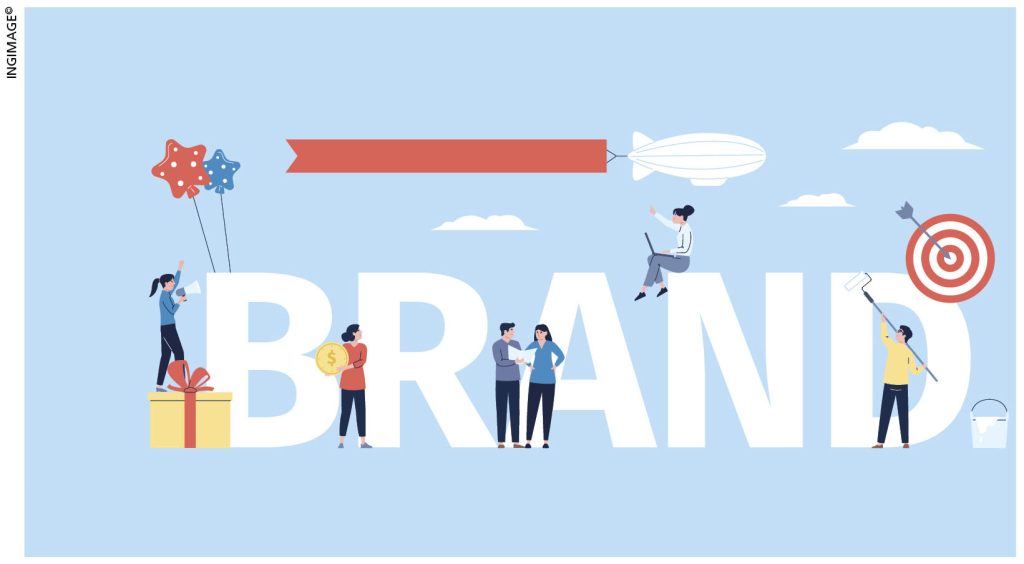INTERNAL MARKETING
In Sri Lanka’s hyper competitive business world, brands are investing millions in advertising campaigns, influencer collaborations and digital media strategies. Yet, one of the most powerful and often underutilised marketing tools is the employees themselves.
Internal marketing is the process of treating employees as your first audience, and ensuring that they are informed, engaged and aligned with your brand’s purpose, values and offerings. It’s about more than simply circulating an email with updates; it includes equipping every employee from the boardroom to the factory floor with the knowledge and belief they need to carry the brand forward.
A BRAND’S MOST POWERFUL VOICE
Claudia Jayatilleke explains why employees are a powerful marketing tool

Despite its importance, many CEOs and leadership teams still treat internal marketing as optional. One reason is the lack of immediate ROI. Its impact is long-term and not as easily tracked as ad clicks or revenue spikes; and it’s also often viewed as an HR function rather than a strategic business tool.
Since it’s not ‘sexy marketing’ like viral ad campaigns or flashy PR launches, internal marketing doesn’t win external recognition or awards.
There’s also a common assumption that employees already understand the business simply because they work for it; and in many cases, businesses focus heavily on external perceptions by prioritising public image over internal trust and alignment.
But this lack of attention comes at a cost with disengaged employees, missed opportunities and inconsistent customer experiences. Globally, disengaged employees cost companies an estimated US$ 7.8 trillion in lost productivity annually, according to Gallup’s State of the Global Workplace 2023 report.
And Sri Lanka is no exception.
In today’s workplace, employees aren’t simply looking for a salary; they want to be part of something meaningful that has a sense of purpose, impact and transparency. Unfortunately, many leaders still keep their business goals hidden and limit communication to a select few even though transparency fosters ownership.
During a crisis in a leading fast-moving consumer goods (FMCG) conglomerate for example, the management kept everyone including factory floor workers informed about a problem that the company was experiencing. Rather than shielding employees, they were kept informed of developments. Everyone worked as team to solve the issue and the company emerged stronger.
This type of transparency builds trust. And when employees are trusted, they rise to the occasion.
Your team should know the brand’s full offering – i.e. products, pricing, benefits and differentiators. This must include everyone in marketing and sales, administration, logistics, operations and even support staff – after all, every employee has a network.
On average, a person knows between 600 and 1,500 people. So if you have 1,000 employees who truly understand your services, they could collectively reach over a million people through casual conversations, social media and everyday interactions. But one disengaged employee can undo months of brand building simply by sharing a negative experience; or worse, being indifferent.
For instance, the management of a popular hospital in Colombo is working on a simple internal initiative that will enable communication with its special clinics and 1,000 plus staff. If all employees know about these offerings, they’re more likely to share them with their friends, family and broader communities.
This amounts to free and authentic marketing driven by people who genuinely care.
Athleisure brands such as Carnage and FOA actively practise internal marketing. Their employees clearly represent and believe in their brands, and they carry that pride to their communities. However, it’s much easier for fashion retail brands to do this because of the straightforward nature of their products and brand messaging.
For complex organisations such as hospitals, which offer a diverse range of services and sometimes even custom offerings, it’s more difficult to communicate widely; but the process is still as important. Every brand needs to connect effectively internally – because it’s essential for building authentic engagement and trust across the organisation.
Ask yourself whether your employees truly know what your company offers beyond their own department or division? Can they confidently describe your services, pricing and values? Do they feel like an integral part of your mission or simply another cog in the machine?
If the answer to any of these questions is ‘no,’ your brand’s most powerful voice is going unheard.
According to data and analytics firm Nielsen, some 92 percent of consumers trust recommendations from people they know. Sri Lanka’s business ecosystem is driven by relationships, trust and word of mouth, and your employees are the first and most credible advocates… but only if they’re equipped to represent your brand authentically.
A single employee carries your brand to hundreds or even thousands of people in their network. Multiply that by your headcount and you’ll see why internal marketing may be the most powerful campaign that you have not yet run.
As they say, ‘culture eats strategy for breakfast.’ And internal marketing is how you serve your organisation’s culture every single day… because when employees believe in the brand, the rest of the world will too.
Culture eats strategy for breakfast





